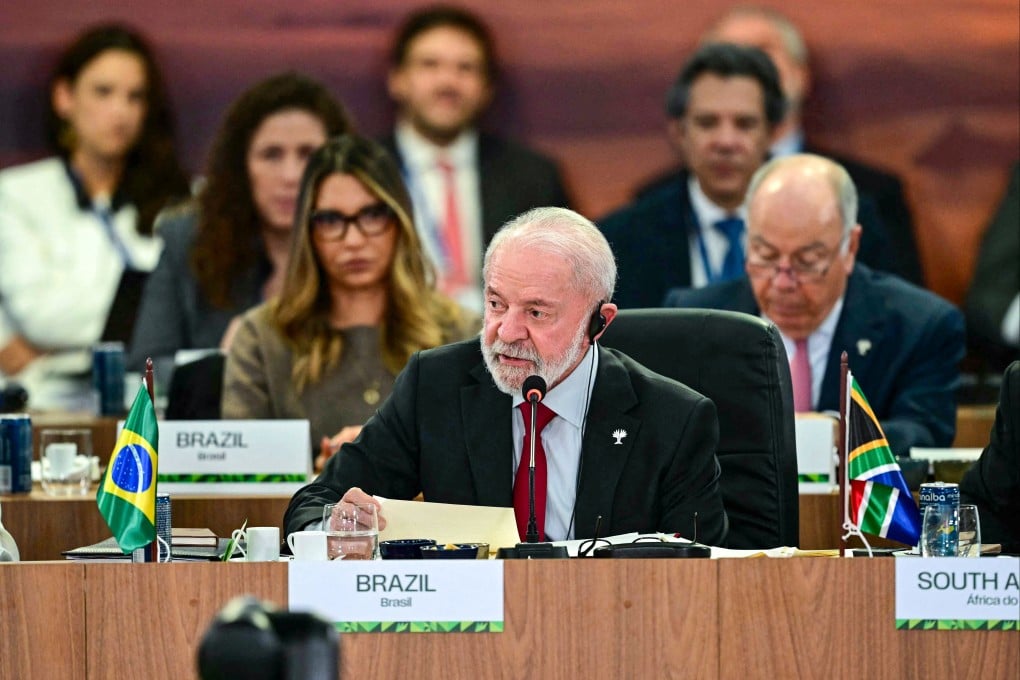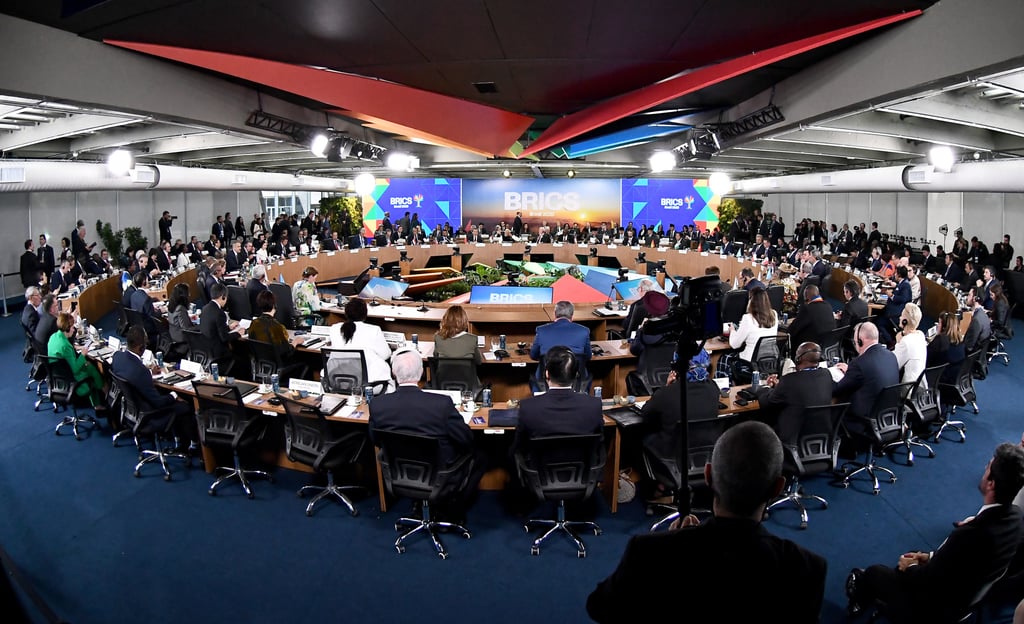Brics in push for UN to take lead on setting rules for artificial intelligence
Leaders say AI is a ‘unique opportunity’ for driving inclusive growth, innovation and sustainability but warn there must be fair governance

The statement, agreed late on Sunday at the summit in Rio de Janeiro, described AI as a “unique opportunity” for driving inclusive growth, innovation and sustainability but warned that without fair governance it could widen the digital gap.
It stressed that given the rapid transformations brought about by technology, it would be imperative to develop “technical specifications and protocols” involving the public sector and UN agencies to ensure “trust, interoperability, security and reliability” across different AI-powered platforms and applications.
“We must prevent standard-setting processes from being used as barriers to market entry for small businesses and developing economies,” leaders of the Brics group of emerging economies added.
They also set out voluntary guidelines for the responsible development and use of AI exclusively in non-military domains. They demanded that all countries, especially those in the Global South, have equal access to AI technologies, data and research capacity.

The statement further called for open-source collaboration, the protection of digital sovereignty, fair competition in AI markets and safeguards for intellectual property that do not hinder technology transfer to poorer countries. The leaders highlighted the role of Brics in fighting climate change and supporting economic transitions to low-carbon growth.

